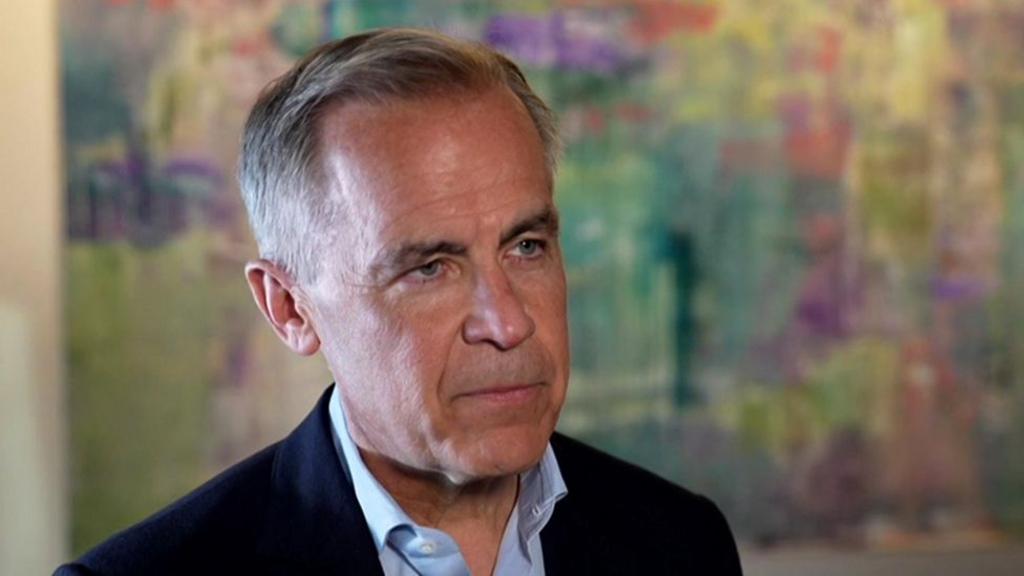Canadian Prime Minister Mark Carney has asserted that Canada expects respect from the United States and will engage in trade and security negotiations with President Donald Trump “on our terms.”
In an exclusive interview with the BBC as polls were closing, Carney emphasized he would only travel to Washington if discussions respected Canadian sovereignty and amounted to “a serious discussion to be had.”
According to the Prime Minister’s office, Carney and Trump have subsequently spoken and committed to meeting in the near future.
“The leaders agreed on the importance of Canada and the United States cooperating—as independent, sovereign nations—for mutual benefit,” the statement noted.
President Trump reportedly also congratulated Carney on his electoral victory.
Since President Trump’s return to the White House, he has repeatedly raised the idea of making Canada the “51st state” of America—a notion reiterated by the White House as recently as Tuesday.
“The election does not affect President Trump’s plan to make Canada America’s cherished 51st state,” White House deputy spokesperson Anna Kelly remarked.
Carney, whose Liberal Party won a historic mandate in a snap election on Monday, dismissed any such outcome as “never, ever going to happen.”
“Frankly, I don’t think it’s ever going to happen with respect to any other [country]… whether it’s Panama or Greenland or elsewhere,” he added.
Nevertheless, he expressed there was “win-win potential” if Canada could reach a new agreement with the U.S. while deepening ties with the European Union and the United Kingdom.
The U.S. remains Canada’s primary trading partner, with approximately 75% of Canadian exports shipped south.
In contrast, Canada accounts for roughly 17% of U.S. exports.
Moreover, Canada is the top foreign supplier of crude oil to America. The U.S. trade deficit with Canada—projected at $45bn in 2024—is largely driven by energy imports.
Relations between Ottawa and Washington have recently been strained, spurred by Trump’s references to a “51st state” and past remarks addressing former Prime Minister Justin Trudeau as “governor,” the customary title for American state leaders.
The U.S. president has also ignited a global trade conflict, with Canada among the first countries targeted for tariffs.
President Trump has imposed a comprehensive 25% tariff on numerous Canadian exports, as well as a 25% tax on all aluminum and steel imports, while exempting products under the USMCA trade accord.
Canada has responded with approximately C$60bn ($42bn; £32bn) in retaliatory tariffs on American goods.
Carney reiterated that any future negotiations would be “on our terms, not on theirs.”
“There is an economic and security partnership to be forged,” he said.
“It will be a much different arrangement than before.”
Carney has highlighted his expertise in managing global economic crises as key to navigating trade disputes with Trump.
Prior to his appointment in March, Carney had not held elected office.
He is a seasoned banker by background, having guided the Bank of Canada through the 2008 financial crisis and later serving as the first non-Briton to lead the Bank of England from 2013 to 2020.
The Prime Minister noted that Canada is the “largest customer for over 40 U.S. states.”
“We supply the U.S. with essential energy. We provide their farmers with virtually all their fertilizer,” Carney told the BBC.
“We deserve respect. We expect respect and, in due course, are confident we’ll receive it. Then meaningful discussions can proceed.”
Canada, the United States, and Mexico share highly integrated economies with billions of dollars in goods—such as automotive parts—moving across borders daily.
New tariffs, which are import taxes paid by purchasers as goods enter a country, threaten longstanding economic cooperation among the nations.
President Trump maintains that tariffs will incentivize Americans to buy domestic products, ultimately strengthening U.S. manufacturing and jobs.
Although China remains the U.S.’s central rival in the trade dispute, Trump’s broad “reciprocal tariffs” against the UK and other European allies have prompted partners to seek new trade arrangements in light of growing barriers.
Carney, who publicly supported UK Chancellor Rachel Reeves during the British general election, noted the opportunity for Canada and the UK to finalize a delayed free trade agreement, though he acknowledged that roughly 95% of trade between the two nations is already tariff-free.
“There is potential to deepen integration among like-minded countries, including on defense partnerships, talks for which are just beginning,” he said.
In a congratulatory message, UK Prime Minister Sir Keir Starmer said: “I know we will continue to work closely on defense, security, trade, and investment.”
Carney stated the upcoming G7 summit, hosted by Canada in June, would be “crucial” in shaping the future of the ongoing trade conflict, and will “test” whether the group of advanced economies—including the US—remains “the most like-minded of like-minded countries.”
The summit coincides with the scheduled expiration of a 90-day suspension on select higher U.S. tariffs.
Here’s what to know following a projected Liberal victory.
President Donald Trump and Prime Minister Mark Carney held talks after Canada’s election.
Initial results suggest the Liberal Party will secure sufficient seats to form the next government.
As Canada’s polls closed, Mark Carney told the BBC there is potential for a renewed partnership with the U.S., but it would be “on our terms.”
A vocal critic of Beijing, Perdue has advocated for a ‘nuanced’ and ‘strategic’ approach to China.

